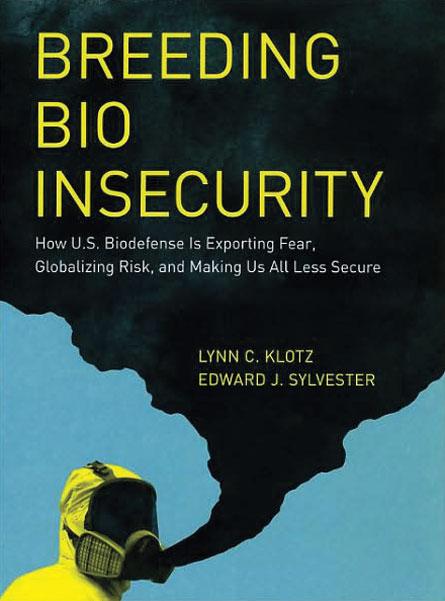Book Review: Breeding Bio Insecurity: How U.S. Biodefense Is Exporting Fear, Globalizing Risk, and Making Us All Less Secure by Lynn C. Klotz and Edward J. Sylvester
Review by Rachel Zelkowitz
American efforts to counter potential biological warfare threats are creating a 21st century Trojan horse.

Klotz and Sylvester make this point early and often in their latest book. They argue that the boom in biosecurity research in the wake of 9/11 has meant an exponential increase in the number of scientists, technicians and other lab workers with access to dangerous biomaterials such as Ebola virus. This trend alone increases the risk of accident or theft. And the secrecy shrouding much of the research promotes suspicion that could spur an international biological arms race, the authors argue.
The authors, a biotechnology expert and a science journalist, support their positions with detailed descriptions of potential bioweapons such as anthrax or botulism and what it would take to weaponize them. In the authors’ view, the challenges of engineering a virulent and stable organism make it unlikely that a terrorist group (read: Al Qaeda) could develop and deploy a biological weapon. The billions of dollars earmarked for biosecurity research would be better spent countering existing public health threats, they say, such as flu or drug-resistant staph infections.
The book is polemic and at times takes on a strident tone. Still, it provides an intriguing overview of biological warfare defense research, past and present. This unequivocal condemnation of U.S. biosecurity efforts merits consideration, particularly by those who would disagree.
University of Chicago Press, 2009, 272 p., $27.50.